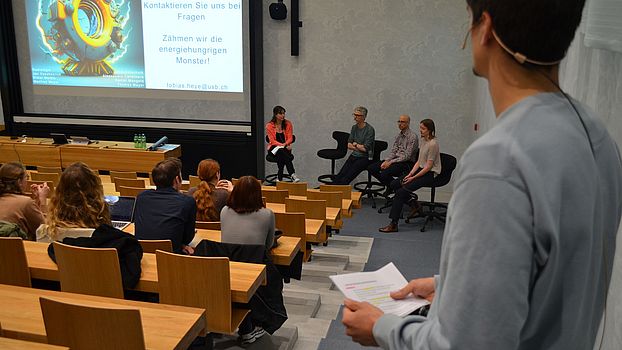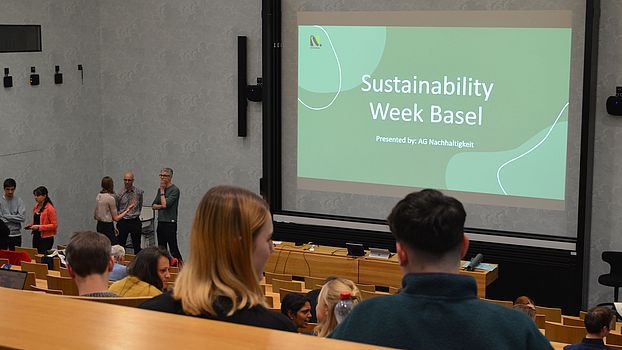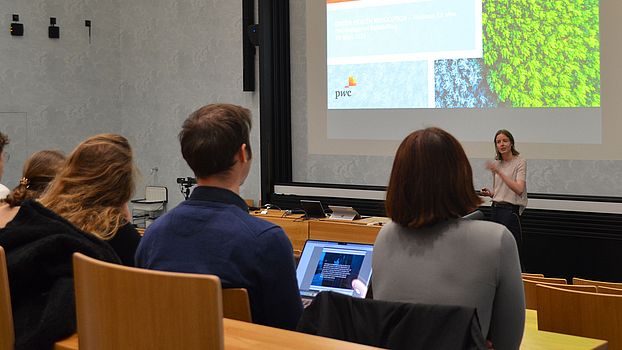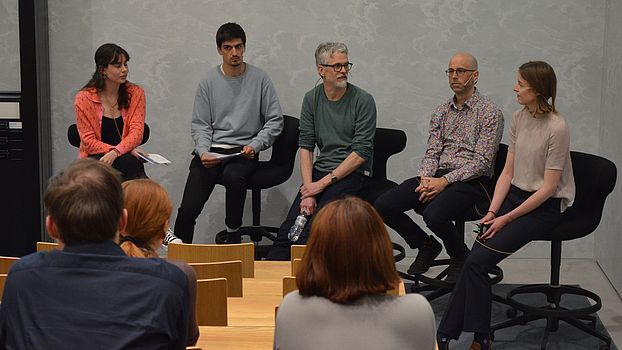/ Events
This was the event "Sustainability in the healthcare sector"
The Swiss healthcare sector is responsible for almost 7% of national greenhouse gas emissions and consumes a considerable amount of resources. To discuss how these environmental impacts can be reduced, an event on the topic of 'Sustainability in the healthcare sector' was held at the Biozentrum on March 19.
The event took place as part of the University of Basel's annual Sustainability Week. It was organized by students of the Master's in Human Medicine at the University of Basel together with Health for Future and the Faculty of Medicine.
After a welcome from the students, the three speakers gave input presentations that examined the topic from different perspectives:
Dr. Christian Abshagen, Head of Sustainability at the USB, explained why sustainability is relevant for hospitals and used the example of the Basel University Hospital's sustainability report to show how a hospital can take measures to improve sustainability in areas such as catering and procurement. Abshagen noted: "Six out of nine planetary boundaries have now been exceeded. The healthcare sector is also contributing to this: The healthcare systems of high-income countries, for example, produce a disproportionate amount of greenhouse gas emissions, while countries with low average incomes are most affected by the impact of environmental crises." Read more: Sustainability at the USB
Sarah Näther, Manager Healthcare Consulting at PwC, reported from a consulting perspective on the challenges of true sustainability in hospitals, the consulting process, international standards and successful sustainability initiatives in hospitals. Näther identified the problem and solution as follows: "The Swiss healthcare sector contributes just under 7% of the national CO2 footprint, which is above the global average. There are already great success stories in hospitals - initiatives are very individual and need to be specifically identified" Read more: PwC impulse paper: "Why sustainability pays off for Swiss hospitals"
Dr. med. Tobias Heye, Head Physician and Radiology at the University Hospital Basel, explained the immense energy consumption and CO2 emissions generated in radiology and the measures they use to save energy: "An average CT machine consumes up to 25,000 kWh per year. That's as much as five households with four people need in a year. With an MRI machine it's more: it can be up to 140,000 kWh. That corresponds to the electricity consumption of 26 households with four people each." Read more: Interview with radiologists from the USB on reducing energy consumption
The three experts then discussed the topic with the medical students and took questions from the audience.
At the end, the speakers were presented with a small gift as a thank you for their participation, offered by the Faculty of Medicine: a bag from Crowd Container with organic, fair food, directly from the farm.
Afterwards, there was an aperitif provided by Ässbar (a pioneer in the anti-food waste sector with baked goods from the previous day) and organic wine from Delinat.
Are you also interested in the topic? Then become part of Health for Future Basel. This is a global movement of people from all health professions who, inspired by Fridays For Future, are committed to climate action. The counterpart in Switzerland was launched during the global climate strike in 2019. Everyone is invited to join this movement and become active.
See also: Sustainability in medical studies




